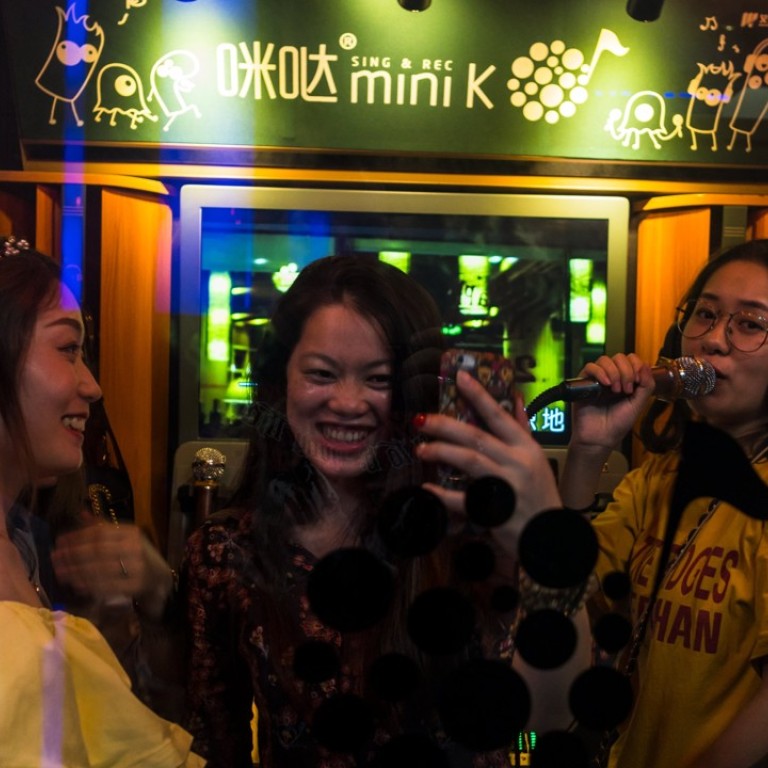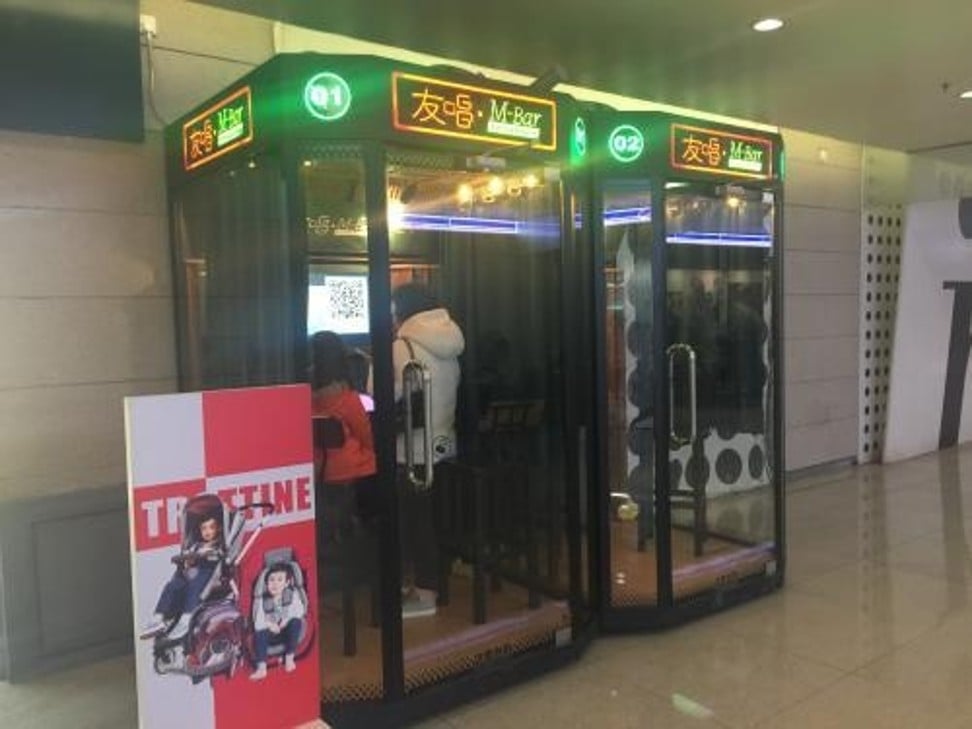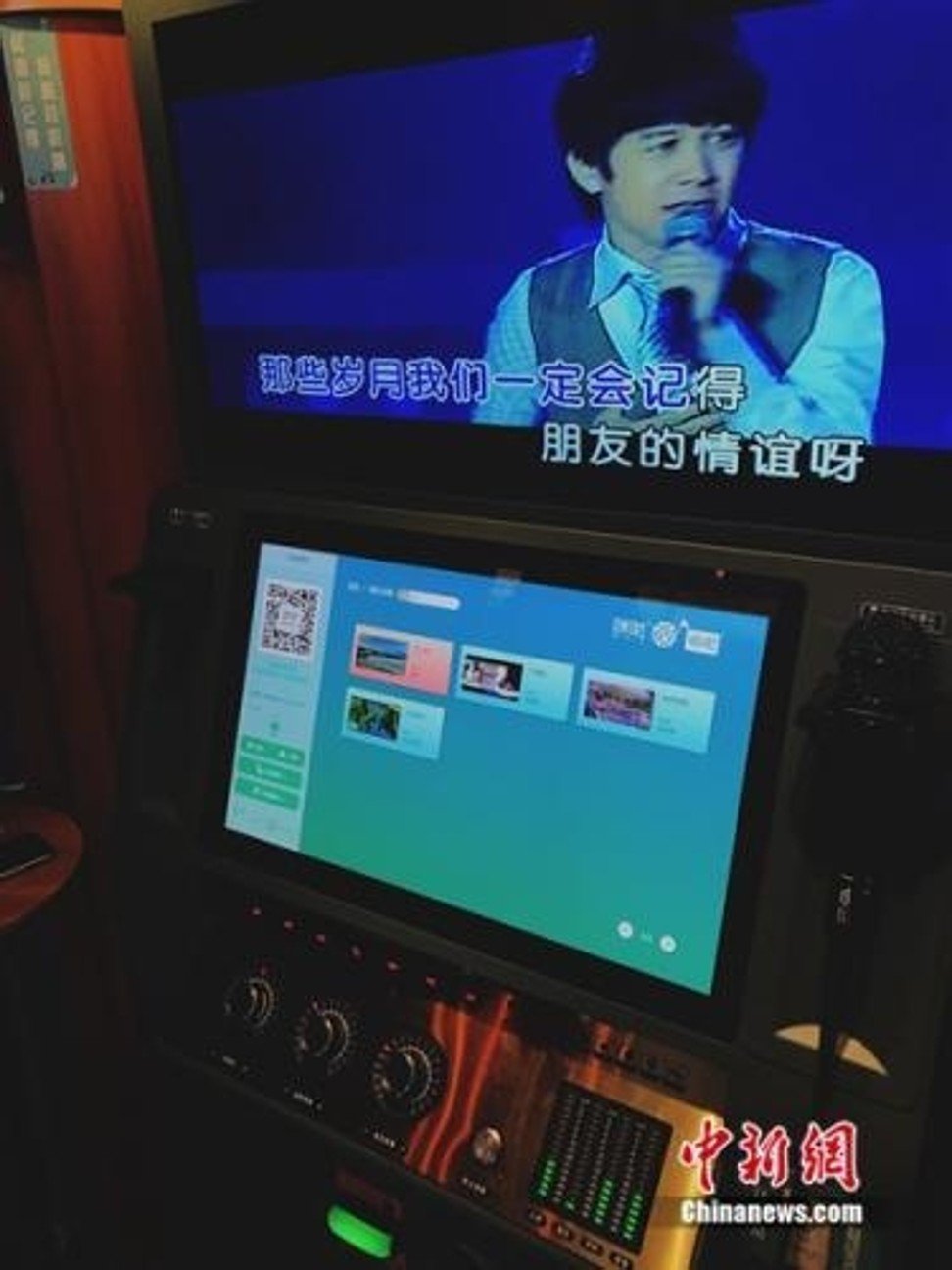
China’s newest trend: mini karaoke booths at shopping malls
You can be charged by the hour or by the number of songs sung, but prices are higher than those at conventional bars, state media report
Mini karaoke booths are catching on in China, tucked away in shopping malls, cinemas and even subway stations, state media reported.
The booths, usually equipped with an air conditioner, a couple of chairs and headsets, are similar to traditional karaoke bars, but in a smaller more intimate environment, the state-run Xinhua news agency reported.
At least 20,000 mini karaoke booths are now operating and the value of the market on the mainland will hit 3.18 billion yuan (US$470 million) this year, the report cited a research company as saying.

Costs vary, with one booth in Beijing charging 58 yuan an hour, or payment can be by the time spent or the number of songs sung.
The charges were relatively expensive as 58 yuan could pay for three hours at some conventional karaoke bars, according to China News Service.
“No matter how good or bad I sing, nobody can judge me, and I can just have my moment,” the Xinhua report quoted a user, Li Rui, from the city of Changchun, Jilin province, as saying.
Li said that at traditional karaoke bars, users have to reserve rooms in advance and there were usually extra charges such as service charge and for beverages and fruit served.
Ma Yan, a music fan, said: “In the past, hosting a party in a KTV meant you had to invite a lot of people, set up a date when everybody was free and book a room, which was not so easy. But with mini KTV booths, everything is easy.”
Other users, however, found that the mini karaoke booths were not very private.
“You have concerns while you’re singing as you’re afraid other people outside are watching,” one user said.
Chinese media reported last month on a shopping mall in Shanghai that had set up “husband rest hatches”, booths where bored men can play video games while their partners shop.

